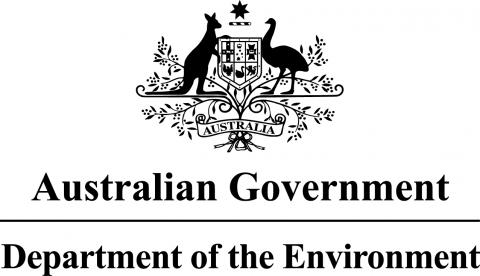Resources
The Conversation
27 September 2013
Humans have already felled or razed about half of the world's forests, and much that remains has been fragmented into small pieces. Research my colleagues and I published in Science today shows that when forests become fragmented, native mammals rapidly disappear, adding to the evidence that deforestation has a devastating effect on biodiversity. Read more
Science World Report
24 October 2013
Amphibians are declining across the globe. The increase of pollution and changing climate are drastically impacting these animal populations. Now, scientists have discovered something else about this amphibian decline. It turns out that the combination of the herbicide atrazine and a fungal disease is particularly deadly to frogs. The findings could help inform future decisions about where and when to use this particular chemical.
"Understanding how stressors cause enduring health effects is important because these stressors might then be avoided or mitigated during formative developmental stages to prevent lasting increases in disease susceptibility," said Jason Rohr, one of the researchers, in a news releases. Read more
ABC News
04 September 2013
The Australian Rainforest Foundation says new federal funding will allow it to crack down on weeds and pests near the world heritage-listed wet tropics area in far north Queensland.
It will receive $775,000 over three years for its project in the Mission Beach Cassowary Corridor.
Executive director Roger Phillips says the group will also help farmers in the region deal with pests and train up to 25 Indigenous rangers. Read more

ABC News
16 January 2014
Tour boat operators, with the help of a $1.1 million government grant, are at the forefront of the fight to manage the impact of the crown of thorns starfish on the Great Barrier Reef. This gallery explores how they do it.
Col McKenzie says teams of around 10 divers stay at sea for 10-day trips, diving four times each day and ultimately destroying around 5,000 starfish each trip. But the teams are having little impact. Read more

Dredging Today
21 October 2013
Environment group Save the Reef says the new federal Minister for the Environment, Greg Hunt, should reconvene the Independent Review of the Port of Gladstone given the latest revelations about water quality in the harbour.
A Gladstone Ports Corporation report from September-October 2011 has confirmed that high turbidity in Gladstone Harbour was caused by a leaking bund wall being constructed as part of the Western Basin Dredging & Disposal Project. The report acknowledged that the high sediment load caused harmful algae which is known to produce disease in marine life. Read more

The Conversation
17 December 2013
The latest climate talk in Warsaw may have achieved little in the way of action on climate change, but they were even worse for biodiversity. In fact, since early climate talks in the 1990s, biodiversity has vanished from international and Australian climate policy. So, why has biodiversity become decoupled from climate change? Read more
Phys.org
09 January 2014
Scientists have gained new insight into the damage done to coral in the Southern Great Barrier Reef by river run-off caused by intense weather events like the 2011 floods.
Core samples obtained from corals around the Keppel Islands reveals the way flood plumes from Queensland's Fitzroy River catchment have impacted reefs as far as 50km from the mouth of the river. Read more
ABC
20 November 2014
Despite increasing pressures from fishing and greater stresses on the Great Barrier Reef, coral trout fish numbers have increased by 50% since the 1980s. So what’s the secret? Anja Taylor takes a dive to investigate how marine parks, take and no take zones are helping to replenish fish stocks. Watch and read more

Cairns Post
11 December 2013
A LEADING Queensland marine scientist has painted a bleak outlook for the Great Barrier Reef, claiming rising sea temperatures could kill it by 2100.
University of Queensland reef expert Professor Ove Hoegh-Guldberg has released a new book on climate change, suggesting sea temperatures could rise 4C by 2100 in a worst-case scenario. Read more

ABC News
16 June 2014
Stunning before and after pictures that show the exact extent of the damage Tropical Cyclone Ita caused to the Great Barrier Reef have been released by an environmental research team.
While much of far north Queensland was spared the worst of the cyclone, the storm was still a category five when it crossed sections of the outer reef. Read more




